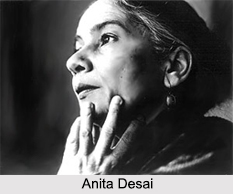Indian Writings in English during Modern Age articulate the budding and the already present writers as well as the influence of Existentialism, Globalisation, Surrealism, Dadaism, Magic Realism and the Post Colonial issues. Even the private tumultuous mayhems and the psychosomatic complexities owing to the robotic existence of the contemporary genre are brought to the fore. Indian Writing in English during contemporary age is thus a tracing of these issues. Though; it is mandatory to be acquainted with the fact that the writings pursue either the classical genre of the modern age or adjust themselves with the contemporaneity of the contemporary age.
 Post-colonial English literature in India works through the process of "writing back", "re-writing" and "re-reading". This delineates the rendering of well-known literature from the point of view of the formerly colonised. Indian English Literature (IEL), as was seen before, pertains to that body of work by writers in India, who pen in the English language and whose native or co-native language could be one of the several regional languages of India. It is also associated with the works of members of the Indian Diaspora, especially people like Salman Rushdie, who was born in India but raised outside. This body of Indian English literature is commonly referred to as Indo-Anglian literature. (Indo-Anglian is a specific term in the exclusive context of writing, which however is not confused with the expression Anglo-Indian). As a category, this production comes under the broader realm of post-colonial English literature in India - the brilliant production from previously colonised countries such as India.
Post-colonial English literature in India works through the process of "writing back", "re-writing" and "re-reading". This delineates the rendering of well-known literature from the point of view of the formerly colonised. Indian English Literature (IEL), as was seen before, pertains to that body of work by writers in India, who pen in the English language and whose native or co-native language could be one of the several regional languages of India. It is also associated with the works of members of the Indian Diaspora, especially people like Salman Rushdie, who was born in India but raised outside. This body of Indian English literature is commonly referred to as Indo-Anglian literature. (Indo-Anglian is a specific term in the exclusive context of writing, which however is not confused with the expression Anglo-Indian). As a category, this production comes under the broader realm of post-colonial English literature in India - the brilliant production from previously colonised countries such as India.
Midnight`s Children, in this extremely complex context of post-colonial Indian English literature, can be viewed as the quintessential fictional novel for illustrating the near overwhelming and implausible difficulties, innate in creating a national identity amongst a hugely heterogeneous post-colonial society.
Novelists like Kamala Markandaya (Nectar in a Sieve, Some Inner Fury, A Silence of Desire, Two Virgins), Manohar Malgaonkar (Distant Drum, Combat of Shadows, The Princes, A Bend in the Ganges and The Devil`s Wind), Anita Desai (Clear Light of Day, The Accompanist, Fire on the Mountain, Games at Twilight) and Nayantara Sahgal could subtly capture the spirit of an independent India, struggling to break away from the British and traditional Indian cultures and establish a distinct identity, thus beginning to usher in the tremendous era of post-colonial Indian English literature.
During late nineteen seventies that a new breed of Convent, boarding-school educated and elite class of novelists and writers, that started to emerge, who forever had chalked out a plan to alter the map of post-colonial Indian English literature. The likes of Salman Rushdie, Vikram Seth, Amitav Ghosh, Shashi Tharoor set the literature world on fire.
During the 1980`s and 90`s, India emerged as a significant and decisive literary nation. Salman Rushdie`s Midnight`s Children turned into a passionate object around the world. The worldwide accomplishment of Vikram Seth`s The Golden Gate made him the first writer of the Indian Diasporas to enter the field of international writers and leave an unforgettable mark on the global literary panorama. Other novelists of repute of the contemporary times post-colonial Indian English literature, comprise - Shobha De (Selective Memory), G.V. Desani, M Ananthanarayanan, Bhadani Bhattacharya, Arun Joshi, Khushwant Singh, O.V. Vijayan, Allan Sealy (The Trotternama), Shashi Tharoor (Show Business, The Great Indian Novel), Amitav Ghosh (Circle of Reason, Shadow Lines), Upamanyu Chatterjee (English August, The Mammaries of the Welfare State), Raj Kamal Jha (The Blue Bedspread), Amit Chaudhuri (A New World), Pankaj Mishra (Butter Chicken in Ludhiana, The Romantics) and Vikram Chandra (Red Earth and Pouring Rain, Love and Longing in Bombay).
 The latest Indian writer who lifted up the world by a storm was Arundhati Roy, whose The God of Small Things earned the 1997 Booker Prize and became an international best-seller overnight. Rohinton Mistry, Firdaus Kanga, Kiran Desai (Strange Happenings in the Guava Orchard), Sudhir Kakar (The Ascetic of Desire), Ardeshir Vakil (Beach Boy) and Jhumpa Lahiri (Interpreter of Maladies) are some other renowned writers of Indian origin, penning for post-colonial Indian English literature. Former Prime Minister P.V. Sthanam Narasimha Rao`s The Insider; Satish Gujral`s A Brush with Life; R.K. Laxman`s The Tunnel of Time, Prof. Bipin Chandra Pal`s India After Independence, Sunil Khilnani`s The Idea of India, J.N. Dixit`s Fifty Years of India`s Foreign Policy, Yogesh Chadha`s Rediscovering Gandhi and Pavan K. Varma`s The Great Indian Middle Class are also some of the prominent works of recent times.
The latest Indian writer who lifted up the world by a storm was Arundhati Roy, whose The God of Small Things earned the 1997 Booker Prize and became an international best-seller overnight. Rohinton Mistry, Firdaus Kanga, Kiran Desai (Strange Happenings in the Guava Orchard), Sudhir Kakar (The Ascetic of Desire), Ardeshir Vakil (Beach Boy) and Jhumpa Lahiri (Interpreter of Maladies) are some other renowned writers of Indian origin, penning for post-colonial Indian English literature. Former Prime Minister P.V. Sthanam Narasimha Rao`s The Insider; Satish Gujral`s A Brush with Life; R.K. Laxman`s The Tunnel of Time, Prof. Bipin Chandra Pal`s India After Independence, Sunil Khilnani`s The Idea of India, J.N. Dixit`s Fifty Years of India`s Foreign Policy, Yogesh Chadha`s Rediscovering Gandhi and Pavan K. Varma`s The Great Indian Middle Class are also some of the prominent works of recent times.
The mid-20th century once more witnessed the emergence of poets such as Nissim Ezekiel (The Unfurnished Man), P Lal, A.K. Ramanujan (The Striders, Relations, Second Sight, Selected Poems), Dom Moraes (A Beginning), Keki Daruwalla, Gieve Patel, Eunice de Souza, Adil Jussawala, Kamala Das, Arun Kolatkar and R. Parthasarathy, who were profoundly influenced by literary movements taking place in the West, such as Symbolism, Surrealism, Existentialism, and Confessional Poetry. These authors as such, made use of Indian phrases together with English words and tried to reflect a blend of the Indian and the Western cultures, still turning out to be the most promising under the post-colonial Indian English literary genre.
Feminism in Indian English novels is not at all a new-fangled concept and over the years many new writers who have broken into the literary circuit and have successfully created a reader base. Indian women writers, composing their thoughts in English range from an array of people like Toru Dutt to Kamala Das and from Sarojini Naidu to Suniti Namjoshi, Arundhati Roy to Shashi Deshpande. These female Indian writers tell the astonishing variety of theme, in a style, that poetry and novels are capable of offering. After absorbing a variety of influences in the last fifty years, after dealing with an array of themes and thoughts, a diverse striates of poetic and literary expressions had been created. Each writer, in their own way, has tried to convey their thoughts in a distinct personal voice, yet they have been successful in forming a part of the chorus, a collective tone emphasizing the sovereignty of women. It must be kept in mind that literary creation by women need not be conceived only as feminist creation. Women writers have often raised their voice against social and cultural principles that constrained their liberty and perpetrated institutional seclusion of women. In most cases the write ups are written in a confessional and personal note, where their composition acts as a social document as they are themselves sufferers and also agents of social revolution.













